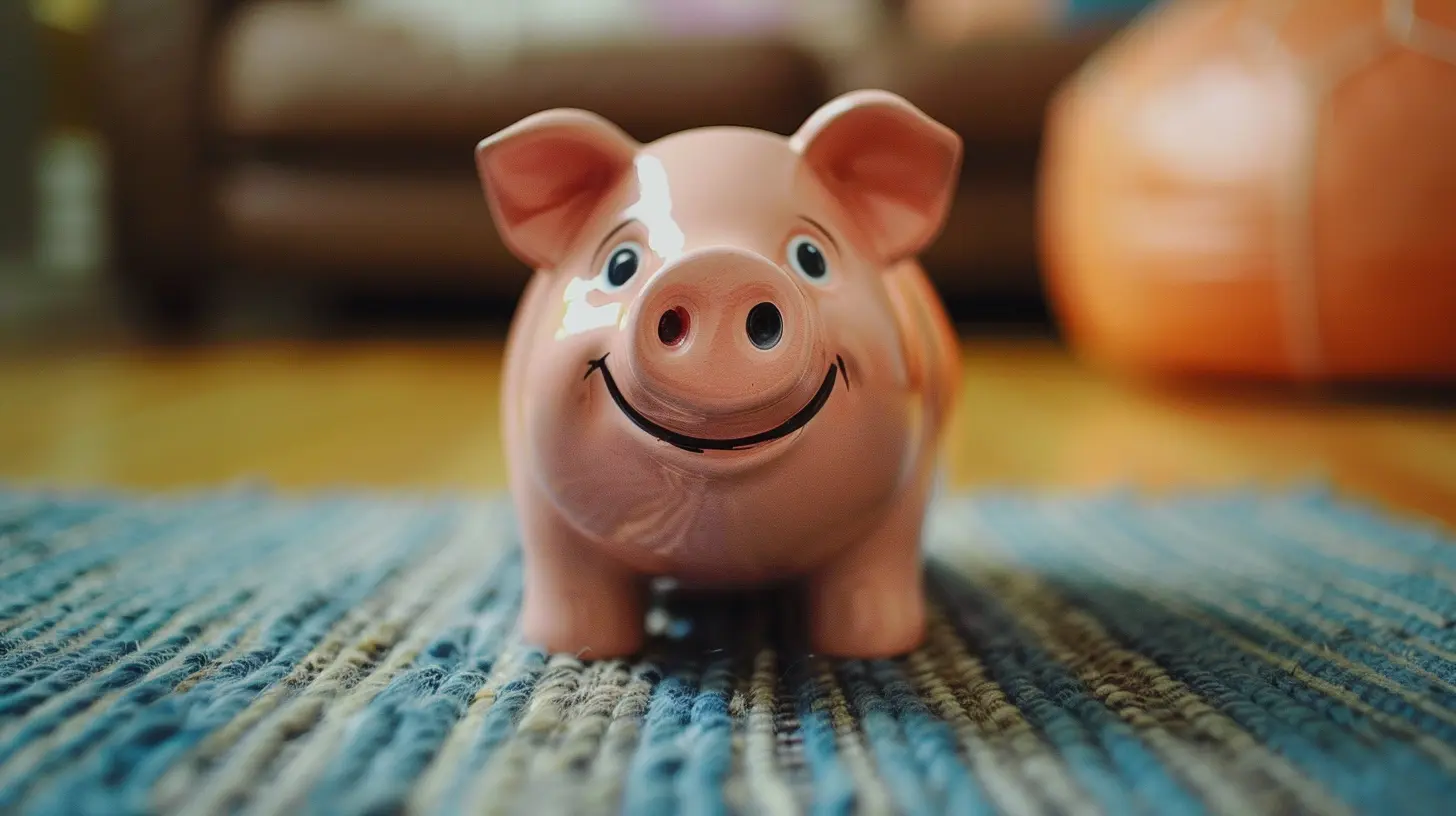How to Create a Personal Budget That Actually Works
7 June 2025
Let’s face it—budgeting has a bad rap. The word alone can make you think about spreadsheets, hours of math, and sacrificing your favorite Netflix subscription. But here’s the thing: a personal budget isn’t just about cutting out lattes or saying goodbye to Friday pizza nights. It’s about taking control of your money so it doesn't control you. Think of it as your money game plan, where you're the coach calling the shots.
Creating a personal budget that actually works isn’t about being perfect; it’s about being intentional. In this guide, I’ll walk you through step-by-step how to build a budget that doesn’t feel like a chore but instead sets you up for financial freedom. Ready? Let’s dive in! 
What is a Personal Budget?
Before we jump into the how, let’s quickly tackle the what. A personal budget is essentially a plan for your money—what comes in, what goes out, and where it all goes. It’s like giving every dollar a job. Without it, your finances can feel like a messy junk drawer—chaotic and overwhelming.And here’s the kicker: budgets aren’t about saying “no” to everything fun in life. They’re about saying “yes” to the things that truly matter, whether that's paying off debt, saving for a dream vacation, or finally starting that emergency fund. 
Why Do Most Budgets Fail?
Spoiler alert: A lot of budgets don’t work because they aren’t realistic. People jump in with good intentions but forget to make room for real life. Who wants to live on ramen noodles for six months just to stick to a spreadsheet? Yeah, no thanks.Here are a few common mistakes that trip people up:
- Setting unrealistic expectations: Cutting out “all” dining out? Yeah, good luck with that.
- Forgetting unexpected expenses: Cars break down, birthdays happen, and life throws curveballs.
- Not tracking spending consistently: If you don’t know where your money is going, your budget is just a pretty piece of paper.
- Making it too complicated: If your budget feels like solving a Rubik's cube, you’ll give up fast.
But don’t worry—avoiding these pitfalls is totally doable. Let’s get into the good stuff. 
Step 1: Figure Out Your Why
Before you start crunching numbers, ask yourself this: Why am I creating a budget in the first place? Your “why” is your anchor. It’s what will keep you motivated when sticking to your budget feels hard.Are you trying to pay off debt? Save for a house? Build an emergency fund? Knowing why you’re budgeting helps you stay focused and gives your plan a sense of purpose.
Write it down. Stick it on your fridge. Heck, make it your phone wallpaper. You’ll thank yourself later. 
Step 2: Track Your Current Spending
Here’s the truth: You can’t create a budget if you don’t know where your money is going. Tracking your spending is like getting a financial reality check.Spend a month (or even just two weeks) documenting every single penny you spend. Seriously, everything. Grab a notebook, download a finance app, or stalk your bank statements like a detective.
Break your expenses into categories like groceries, rent, utilities, subscriptions, dining out, and entertainment. This step might sting a little (hello, $200 spent on coffee runs), but it’s crucial.
Step 3: Calculate Your Income
Next up, figure out how much money you actually bring in each month. This means your take-home pay—after taxes, deductions, and all that fun stuff.If you have a steady paycheck, this step is super straightforward. But if you’re a freelancer, gig worker, or have side hustles, calculate your average monthly income. Be conservative—count only what you’re confident you’ll make.
Now, you know how much money you have to work with.
Step 4: Set Clear Financial Goals
Remember your “why” from earlier? Now it’s time to translate that into concrete financial goals. Your goals can be short-term (paying off a credit card) or long-term (saving for retirement).The key is to make them specific and realistic. Saying “I want to save money” is too vague. Instead, say, “I want to save $5,000 for an emergency fund in 12 months.” Having a target makes budgeting more meaningful.
Step 5: Use the 50/30/20 Rule (Or Customize It!)
If budgeting feels overwhelming, start simple. The 50/30/20 rule is a popular framework that divides your income into three categories:- 50% Needs: Think rent, groceries, utilities, transportation—anything you can’t live without.
- 30% Wants: Dining out, streaming subscriptions, vacations—things that make life enjoyable.
- 20% Savings/Debt Repayment: Emergency funds, retirement accounts, extra debt payments.
This isn’t a hard-and-fast rule, though. Customize it based on your priorities. For example, if paying off debt is your top goal, you might bump up savings to 30% and trim “wants” to 20%.
Step 6: Create Your Spending Plan
Here’s where the magic happens: building your actual budget. List out all your income sources and expenses, and assign a dollar amount to each category.For example:
- Income: $4,000/month
- Expenses:
- Rent: $1,200
- Groceries: $400
- Utilities: $200
- Car Payment: $300
- Entertainment: $150
- Savings: $800
Once you’ve written everything down, do the math. Your total expenses should equal your total income. If they don’t, adjust!
And don’t forget to include “fun money.” Life isn’t just about bills and savings—it’s okay to budget for guilty pleasures.
Step 7: Build an Emergency Fund
Newsflash: An emergency fund is non-negotiable. An unexpected car repair or medical bill can wreck your budget if you’re not prepared.Experts recommend saving at least three to six months’ worth of expenses. Start small, though. Even having $500 to $1,000 set aside can make a big difference.
Treat your emergency fund like a safety net. It’s there to catch you when life happens.
Step 8: Track and Adjust
Budgets aren’t static—they’re living, breathing plans that need regular check-ins. Track your spending weekly (or at least bi-weekly) to make sure you’re staying on track.And here’s the thing: life changes. A budget that worked last month might need tweaking this month. Got a raise? Add more to savings. Overspent on dining out? Adjust next month’s category.
Give yourself grace. Budgeting is a learning curve, and no one gets it perfect right away.
Step 9: Use Tools to Simplify
If managing a budget sounds like too much work, guess what? Technology has your back. There are tons of apps out there that make the process painless:- Mint: Tracks spending, makes budgets, and sends alerts.
- YNAB (You Need A Budget): Great for zero-based budgeting enthusiasts.
- PocketGuard: Helps prevent overspending.
Pick one, and let it do the heavy lifting for you.
Step 10: Celebrate Wins
Finally, don’t forget to celebrate small wins along the way. Paid off a credit card? Treat yourself to a nice dinner. Hit your savings goal? Plan a weekend getaway (within budget, of course).Budgeting isn’t about being perfect; it’s about progress. And every step forward is a step toward financial freedom.
Final Thoughts
Creating a personal budget that actually works doesn’t have to be intimidating, boring, or restrictive. It’s all about taking control of your money in a way that aligns with your goals and values.Think of a budget as a tool—not a punishment. It’s here to help you live your best life, not to rob you of joy. So start small, be consistent, and tweak as needed. Before you know it, you’ll be a budgeting pro.
all images in this post were generated using AI tools
Category:
Financial HabitsAuthor:

Knight Barrett
Discussion
rate this article
2 comments
Hope McWilliams
Creating a personal budget is not just about tracking expenses; it’s about aligning your financial goals with your values. Prioritize essential needs, set realistic spending limits, and regularly review your progress to ensure your budget evolves with your life circumstances.
June 11, 2025 at 11:35 AM

Knight Barrett
Absolutely! Aligning your budget with your values and goals is key to financial success. Regular reviews help keep it relevant as your circumstances change.
Mia McCord
Great tips! A practical personal budget can really transform financial habits. Focusing on realistic goals and tracking expenses will lead to lasting success. Looking forward to implementing these strategies!
June 10, 2025 at 4:26 AM

Knight Barrett
Thank you! I'm glad you found the tips helpful. Wishing you great success with your budgeting journey!


